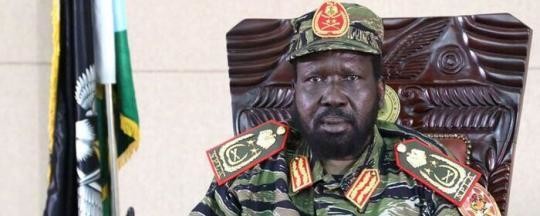South Sudan has formed a ‘consumer prices evaluation committee’ in response to rising inflation amid shortages of dollars that have affected importers as well as consumers.
Speaking yesterday, the Undersecretary at the Ministry of Trade and Industry Simon Nyang Anei said the government was very concerned about the rising prices in the markets.
“The government is doing everything it can to address this issue. This is a serious concern and we ask our people to be patient as the government is working to see into it that this matter is addressed,” said Nyang.
He claimed the government was still able to provide traders with letters of credit worth thousands of dollars to help them buy essential commodities from outside the country and import them.
He blamed some companies or raising prices in spite of this. “There are companies getting the letters of credit yet prices continue to go up,” Nyang said.
Consequently, the official explained, the Council of Ministers last week decided to form an evaluation committee to establish the cause of the rising consumer prices in the markets across the country.
“We know that some states like in Bahr el Ghazal and Upper Nile have been affected because of the current conflict and the ongoing elections in Sudan because Sudanese authorities have closed the road but other states like in Equatoria are still getting supplies from neigbouring countries,” he said.
‘Government is major borrower’
Martin Aligo Abe, secretary-general of an alliance of political parties in South Sudan, argued that lack of fiscal discipline in the government is behind the weakening economy.
Abe urged the government to “cut back” on expenditure to help stop the continuing deterioration of the value of the South Sudanese pound.
The opposition figure stressed that the country was in an economic environment where political authorities had failed to resist popular demands which overstretch the budgetary capacity.
“We have been living in a scenario of economic environment of spend, spend and spend, where the political authorities have not been resisting popular demand which have had the effect of overstretching the capacity of the budget to meet those demands,” he said.
“Basically, it (fiscal indiscipline) has created a crisis in terms of expenditure. Now when demand overstretches budgetary capacity, you are in for a down spiral in terms of performance of the key indicators in the economy, including a cutback by private sector to borrow in order to invest because government is clouding out borrowing in the banking sector; it becomes a major borrower rather than the private sector,” said Martin.
He said laudable as national development may be, the government needed to avoid going against budget limitations.
“We have seen, and I have been consistent in my call, that somehow there should be budget restraint in terms of spending. There should be fiscal discipline and there should be a need to call key stakeholders to come together and address the down spiral of the pound and one of the expected outcome of such a meeting between government, at the highest possible level, and key stakeholders in the economy – investors, manufacturers, farmers, bankers and so on – would be identifying areas where we should cut down on public spending and make government slightly more efficient; running at less cost but more efficient,” he advised.
For more coverage of economic issues in South Sudan read our exclusive ‘War Economy‘ series.
File photo: President Salva Kiir




